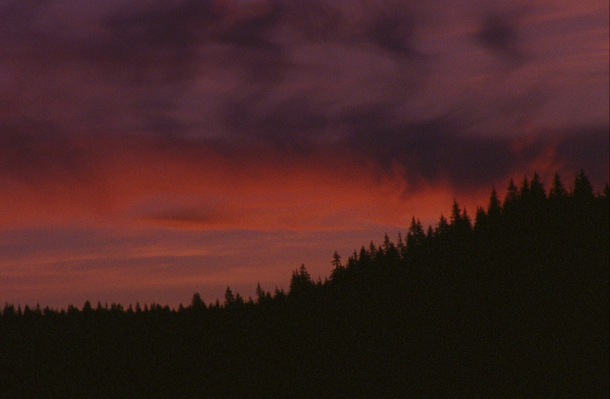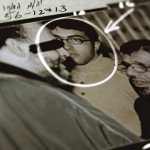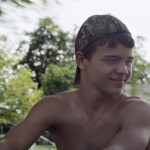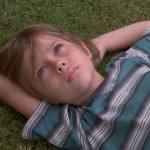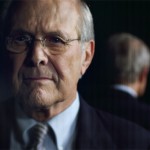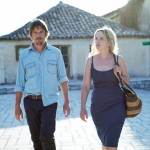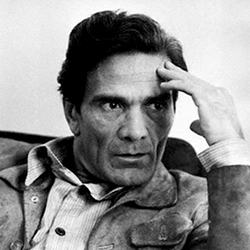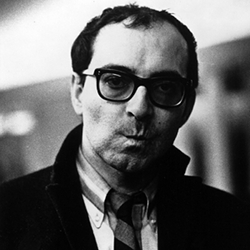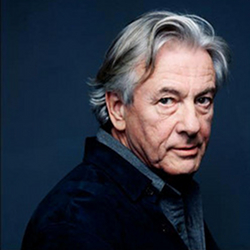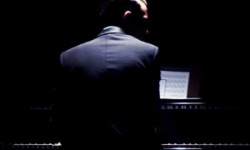
True/False Film Festival Capsule Reviews: The Vanquishing of the Witch Baba Yaga, The Unknown Known, Boyhood
The Vanquishing of the Witch Baba Yaga (2013)
dir. Jessica Oreck
Though almost all the films I have seen at True/False have felt fresh and inventive in some way, The Vanquishing of the Witch Baba Yaga is the most formally daring film I have taken in. Somewhere between ethnography and filmic essay, the film examines the relationship between people and their land in Eastern Europe in surprising and poetic ways. I had high hopes for this going in, and it did not disappoint – it’s a bit like if T.S. Eliot did Koyanasqaatsi in the Soviet bloc, but with mushrooms and lush animation instead of Philip Glass music. Or something.
Most of the film consists of shots of various aspects of life in Eastern Europe. Oreck captures crumbling apartment complexes left over from the era of Stalinist drabness. Elderly people and their grandchildren hunt for mushrooms in the forest. Men scythe grass, get married, die. Atop these rhythms of life Oreck lays narration, read by a deep voiced Russian man, about life and the relation of culture to nature. If that sounds ponderous and navel gazing, well, it is, but in a hypnotic, enthralling way. Oreck also intercuts beautiful still shot animation which tells, piece by piece, one of the legends concerning the witch Baba Yaga, of old Russian folklore. These parts could have seemed cheesy and forced; instead they weave remarkably well into the textures of the film, providing subtle commentary on a place where tradition fights for a place amidst the rushing forces of advancement. The result is a slow, profound, utterly mesmerizing piece of cinema.
For better or worse, the comparison point people will keep coming back to for Errol Morris’ new film about former Secretary of Defense Donald Rumsfeld will be his earlier film about a Secretary of Defense, The Fog of War. It’s an understandable juxtaposition, given the similarities in form and content of the two films, and Fog of War’s status as one of the master’s greatest works. That being said, the comparison hurts The Unknown Known, which I’ve seen many advance reviews describe as a retread that’s less interesting because Rumsfeld is less forthcoming than Robert McNamara. This is true – there’s none of the self-doubt and emotion of McNamara in Rumsfeld’s performance (the most apt word in this scenario) – but Morris is such a strong filmmaker that he uses this to his advantage, pulling back from what starts out as a more straightforward examination of Rumsfeld’s life, particularly his role in the Iraq War, to create a film about the ambiguity of language and perspective and how that effects perceptions of events. Rumsfeld gradually pulls the film into the near past after working his way through the early stages of his career (including a wonderfully humanizing aside about his proposal to his wife). When Morris begins to question him about the atmosphere of the Pentagon and White House post-9/11, the fun begins. Rumsfeld does his best to dodge questions that might put him at a disadvantage, and Morris takes pursuit. A Tom and Jerry tableau ensues. What is remarkable about this chase is both its philosophical potency and its ability to elicit empathy from the audience. Several times Morris actually oversteps, seems to become actively hostile to Rumsfeld – I found myself in the awkward situation of identifying with a man I have always considered at best a fool, at worst a monster. Wittingly or unwittingly, Morris exposes the deep complexities a person in Rumsfeld’s situation has to face. It also leads to some interesting reflections on the meaning of language. Throughout the film, Rumsfeld reads selections from the tens of thousands of memos he has written over his career; Morris visualizes definitions of words as Rumsfeld ponders over them; in a few cool scenes words themselves become visual metaphors, dropping down a bottomless pit or floating along the ocean. Appropriate stuff for a film that blends style and substance so well. True/False closed with a showing of Boyhood, the new (and old!) film from Richard Linklater. Though a fiction film, Boyhood certainly fits into the general style of other True/False films: shot over a 12 year period, it catalogues the life of a boy growing up, with all the challenges that entails. It is by no means a perfect film, but it is a remarkable accomplishment, a feat of daring vision and incredible empathy. The film follows Mason (Ellar Coltrane) – at the beginning a six year old boy with an older sister, a caring but frazzled mother, and a father who has separated from the family. Over the years we watch him grow and change, from an introverted, video game obsessed child to an artistic teen wondering where he fits in life. His family grows and changes alongside him: his father (Ethan Hawke) especially, who at the beginning seems like a deadbeat but who grows into responsibility with grace. It’s a remarkable sweep of time (the film ends on Mason’s first day of college), which definitely causes some problems. At a few points it feels like Linklater puts in plot points based on a checklist of things boys experience growing up, which actually detracts from the particularity of Mason’s situation. There’s a running thread of how his mother (Patricia Arquette) always chooses bad men that feels repetitive and overly melodramatic. On the whole, though, the cast – especially the four leads (which number includes Lorelai Linklater, the director’s daughter, as Mason’s sister) – elevates even the slightly clunky material to make it heartfelt and resonant. Boyhood is a very different experience than most films, but one highly worth seeking out.
The Unknown Known (2013)
dir. Errol Morris
Boyhood (2014)
dir. Richard LinklaterRelated Posts
![]()
Asher Gelzer Govatos
![]()
Latest posts by Asher Gelzer Govatos (see all)


